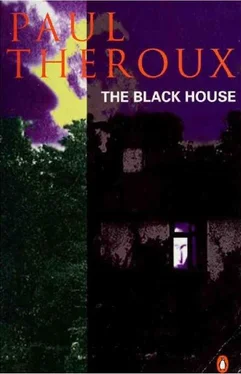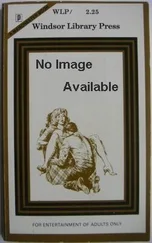Paul Theroux - The Black House
Здесь есть возможность читать онлайн «Paul Theroux - The Black House» весь текст электронной книги совершенно бесплатно (целиком полную версию без сокращений). В некоторых случаях можно слушать аудио, скачать через торрент в формате fb2 и присутствует краткое содержание. Год выпуска: 1996, Издательство: Penguin Books, Жанр: Современная проза, на английском языке. Описание произведения, (предисловие) а так же отзывы посетителей доступны на портале библиотеки ЛибКат.
- Название:The Black House
- Автор:
- Издательство:Penguin Books
- Жанр:
- Год:1996
- ISBN:нет данных
- Рейтинг книги:4 / 5. Голосов: 1
-
Избранное:Добавить в избранное
- Отзывы:
-
Ваша оценка:
- 80
- 1
- 2
- 3
- 4
- 5
The Black House: краткое содержание, описание и аннотация
Предлагаем к чтению аннотацию, описание, краткое содержание или предисловие (зависит от того, что написал сам автор книги «The Black House»). Если вы не нашли необходимую информацию о книге — напишите в комментариях, мы постараемся отыскать её.
The Black House — читать онлайн бесплатно полную книгу (весь текст) целиком
Ниже представлен текст книги, разбитый по страницам. Система сохранения места последней прочитанной страницы, позволяет с удобством читать онлайн бесплатно книгу «The Black House», без необходимости каждый раз заново искать на чём Вы остановились. Поставьте закладку, и сможете в любой момент перейти на страницу, на которой закончили чтение.
Интервал:
Закладка:
But it was a false start. He had groped in his mind for that distant landscape and tried to be faithful to the memory he had kept of those people who lived in the steamy exposed swamps beyond the mountains, in huts they knocked down regularly every two years. Talking with Alec in the Wheatsheaf, he had seen them clearly and remembered so much. He wrote eagerly, his writing flowed; but the eagerness and the speed was deceptive. He reread his pages and the words capsized his heart, for in every word he wrote were the dripping oaks, the gorse and broom around the Black House in Four Ashes, the mood of that particular day when they had been trapped in the cow pasture and seen in the fading light those pathetic boys carrying empty bottles, and later his sight of the two dead dogs under the canvas.
He crumpled the pages and began again to describe Africa; but he described an English day, withered leaves, the pale winter sun. Fear.
This new place, a looming vision, drove out all the others—the African scenes which his familiarity only blurred—and it even banished all his earlier memories of England, everything except childhood fear and childhood loneliness. At his desk he saw a young boy with inky slender fingers reading Malinowski in a South London library and guiltily looking up from time to time at men holding newspapers fixed to bamboo rods who he believed could read his deepest thoughts and who despised his ambition. The image of that frightened boy stayed in his mind, and it was as if in the forty years that lay between that afternoon and this, nothing had happened. The years had passed but every detail of experience was lost to him. And he was sorry, because the boy in the library who had imagined himself in a canoe in the western Pacific, and living among naked savages, and famous for it, could not know that the years would fall away and not even all the intervening failure was preparation enough for a return to this room and more fears and a sadder image of himself.
He was distressed to see Emma repeating his disappointment in her painting. She worked from sketches she had made in the back garden. Her colors floated; the pictures were indistinct, a child’s primitive vision of earth and sky. Attempting to paint over her mistakes she made the mistakes stand out or else muddied them with greater error. Munday could see that outwardly the Black House resembled the African bungalow: Emma was painting, the servant was cleaning, he was going through his notes. They had never spoken about it, but what had sustained them in Africa was the thought that if they failed there they could always return home. Now they were home, there was nowhere else to go and it seemed there was nothing more for him.
His sense of the fugitive woman in the house grew fainter with Mrs. Branch’s cleanings. He had both regretted and longed for that third presence; he had anticipated the event of her appearing, revealing herself to him and uncovering his memory. He yearned for a great passion, a great idea, a future to complete and release him. He sat in his study, simulating work, to prepare himself for inspiration, believing that his memory was like a dark room which the eye of his imagination would accustom itself to. He labored without motion or progress. He heard sounds and looked up to see the awkward girl at the study door. In irritation he said, “Yes, Branch, what is it?”
“We call this the shortest day of the year,” she said. And softly: “I thought you might want to know.”
“Thank you,” he said.
On Christmas they heard church bells ringing on all sides, in villages sunken from view; huntsmen passed the house, and children in new boots. They exchanged presents, a tie, a scarf, and new diaries for the coming year. There were distant horns, the hunt swarmed in the back pasture and the foxhounds yapped through the afternoon. They talked of going out for a walk, but it was cold; they stayed indoors and between them finished the bottle of amontillado.
11
“Awdry,” said Munday, putting the receiver into its cradle. “He’s invited us over to his New Year’s Eve thrash.” Emma removed her reading glasses before she spoke. She said, “Tomorrow?”
“Someone must have backed out.” "
“Still, it might be fun. I hope I can find something to wear.”
But Munday was saying to Mrs. Branch, “What do you know about Mr. Awdry?”
Mrs. Branch smiled and paused, and for a few moments she nodded, considering slowly what she would say. It was a habit of response she had picked up since Munday had begun questioning her, and Munday felt that her delay, miming reflection, was a purposeless show of self-importance he had encouraged in her. She said, “They say that in the manor they had these painters doing pictures on the ceiling—lying on their backs they was.” She shook her head at the madness of it. “Keeps his dishes locked up in a safe, and he’s got this little gold bell on the table, very expensive, that he rings when he calls the cook—that’s Mrs. Hosmer. He gave her twenty pounds at Christmas. He’s posh, is Mr. Awdry, but they say he’s ever so kind.”
“I’m sure,” said Munday. He doubted that, and the late invitation annoyed him; but he was glad to have it.
Lewesdon Manor was at the end of a long gravel drive lined with boxwood hedges whose fullness and size told the age of the house. In its facade of warm floodlit stone, made mild by the lights, were twelve bright windows—there were candles in the upper ones—and through one of the ground floor windows they could see some people standing before a fire flickering in a hearth. Large, open, and well lighted, it was a house which welcomed with its warmth and its close arched doorway, female with wisteria which, even leafless, retained a look of complicated clinging elegance.
“So glad you could make it,” said Awdry, and he introduced the Mundays to Mrs. Awdry, who had just entered the high-ceilinged hall in a dress of green watered silk; she was also wearing a frilly white apron —‘Tm helping out in the kitchen,” she explained. “We’ve got flu.”
“We haven’t had it, thank goodness,” said Emma.
“It’s worse than malaria,” said Mr. Awdry. “And I know, because I’ve had malaria!”
“It sucks one so,” said Mrs. Awdry.
“I once had cerebral malaria,” said Munday.
“I knew a chap who died from a bout of that,” said Mr. Awdry.
“It’s usually fatal,” said Munday. “A mission doctor prayed for me. Fortunately he also had the foresight to treat me with chloroquine.” Mr. Awdry said “We’ve got lots to talk about” to Munday, and Mrs. Awdry took Emma aside and explained how at a country auction they had picked up the Jacobean church pew Emma was admiring, which served as a bench in the hall. Then Mrs. Awdry excused herself saying, “I must see to the turkey.” Standing near the fire in the living room were the vicar and Mrs. Crawshaw, and two young couples who were introduced as the Stricks and the Motherwells.
“This is Doctor Munday, the writer,” said Awdry.
Munday tried to correct him.
Anne Motherwell said, “We’re talking about children.”
“My favorite subject,” said Munday.
“How many do you have?” asked Janet Strick.
“None that I know of,” said Munday, “which means I can be perfectly objective.”
“Punch?” asked Awdry.
“Lovely,” said Emma.
“Whisky for me,” said Munday. “No ice, a little water.”
“Won’t be a moment,” said Mr. Awdry and went for the drinks.
“We’re all having the punch,” said Janet Strick to Munday, as Emma drifted over to the vicar and his wife.
Munday made a face. “But one never knows what they put in punch, does one?”
“Mr. Awdry’s punch is quite famous,” said Janet eagerly. “He makes it with the local cider and some secret ingredients.”
Читать дальшеИнтервал:
Закладка:
Похожие книги на «The Black House»
Представляем Вашему вниманию похожие книги на «The Black House» списком для выбора. Мы отобрали схожую по названию и смыслу литературу в надежде предоставить читателям больше вариантов отыскать новые, интересные, ещё непрочитанные произведения.
Обсуждение, отзывы о книге «The Black House» и просто собственные мнения читателей. Оставьте ваши комментарии, напишите, что Вы думаете о произведении, его смысле или главных героях. Укажите что конкретно понравилось, а что нет, и почему Вы так считаете.












